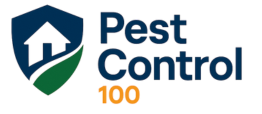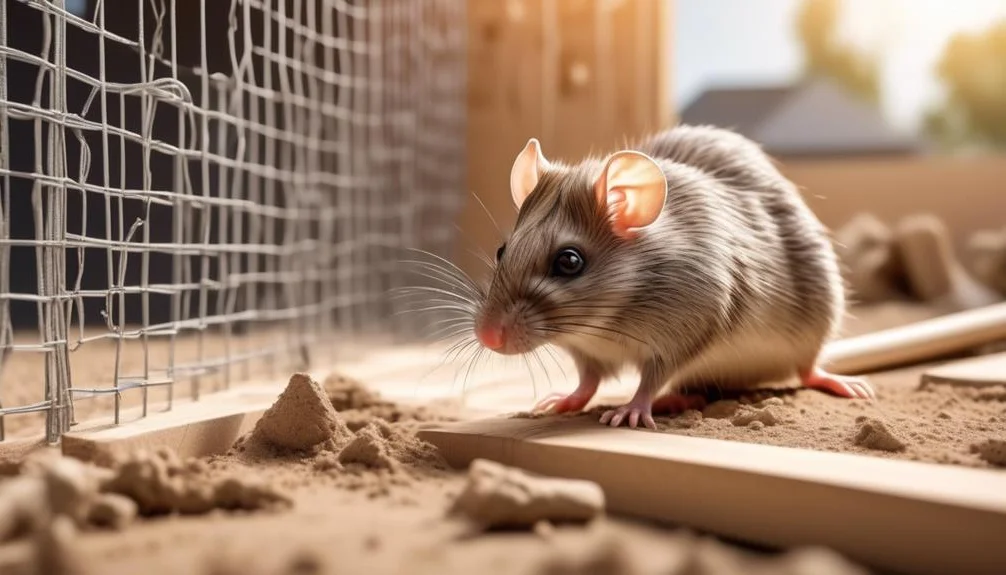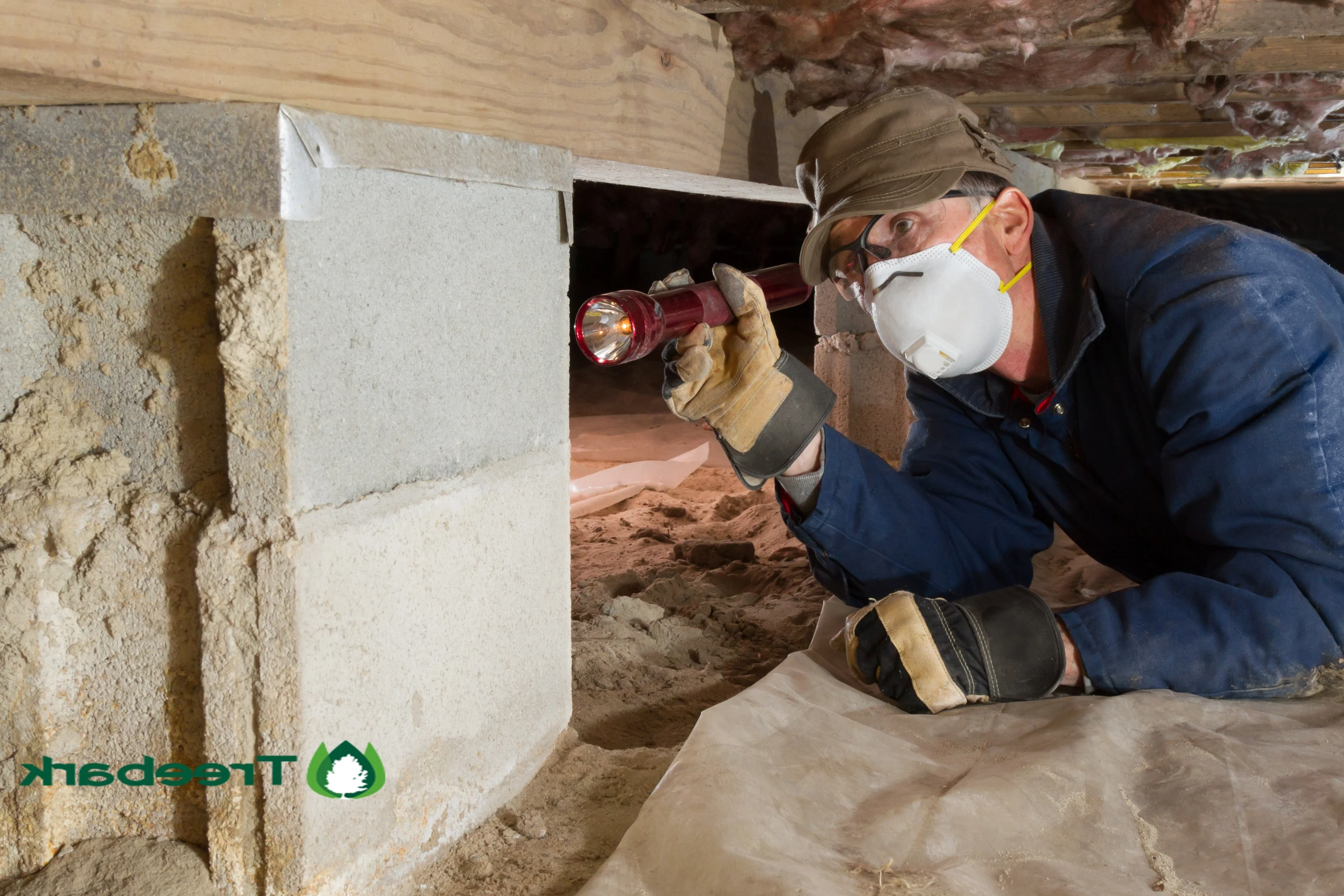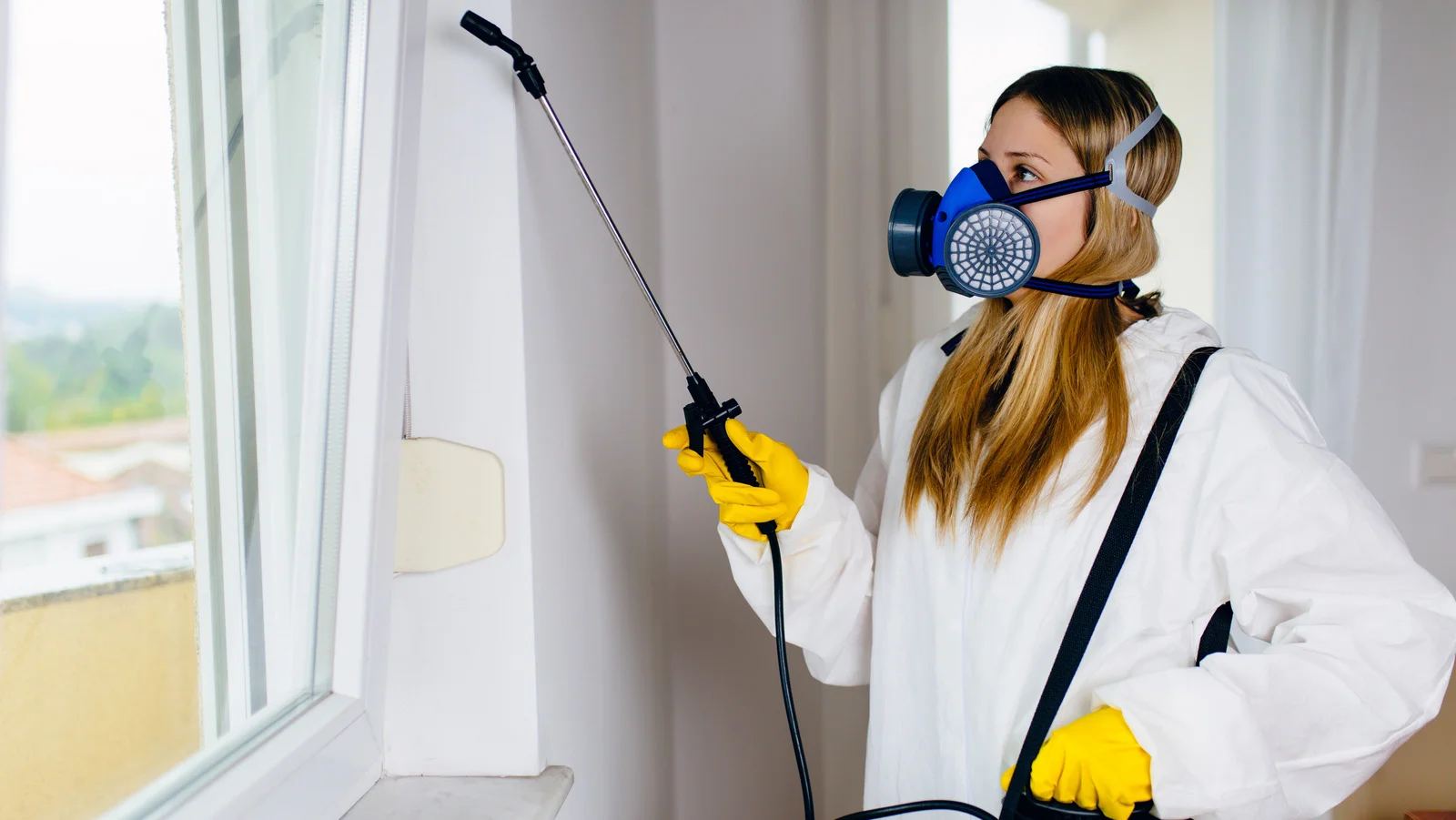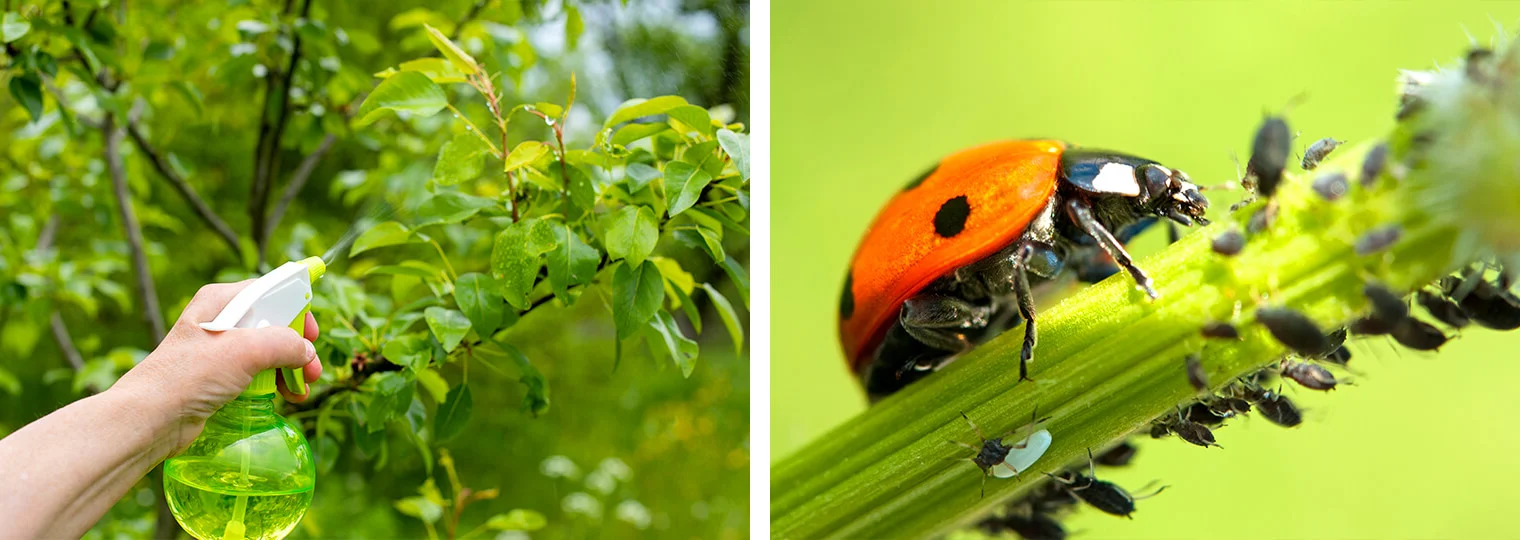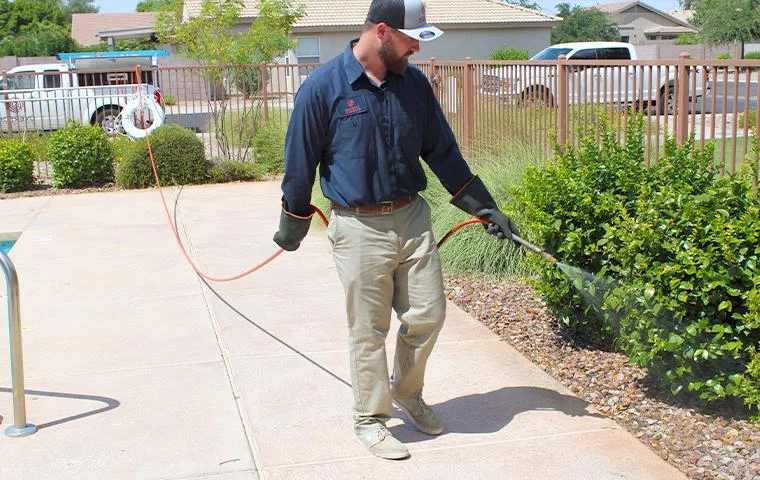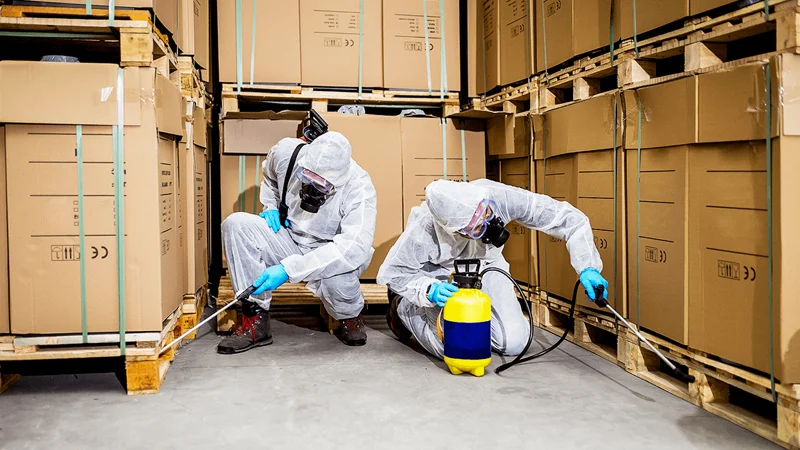From Philadelphia's historic neighborhoods to Pittsburgh's revitalized communities, Pennsylvania's diverse landscapes create distinctive pest challenges. The state's four distinct seasons generate a constant cycle of pest activity, with cold, snowy winters driving rodents indoors and warm, humid summers creating ideal breeding conditions for insects. Professional pest control in Pennsylvania requires understanding these seasonal patterns – the dense forests, abundant waterways, and mix of urban and rural environments all contribute to recurring pest issues.
Homeowners and businesses across Pennsylvania continually face risks from pest infestations that can damage property, threaten health, and disrupt daily activities. That's why many residents rely on professional exterminators who understand the region's specific challenges. Local experts recognize that both prevention and targeted treatments are essential to maintaining pest-free properties in Pennsylvania's varied climate. In this guide, we'll explore common Pennsylvania pest problems, effective control strategies including eco-friendly pest solutions, and why partnering with local professionals ensures the most reliable protection for your home or business.
Dealing with a pest emergency? Our Pennsylvania team provides
emergency pest control
24/7 and comprehensive
pest inspections to protect your property.
Schedule now for fast, effective service!
Pest Control Challenges Specific to Pennsylvania
Pennsylvania's environment creates unique pest control challenges that require specialized knowledge and approaches. Here's why pest control in Pennsylvania can be particularly demanding:
-
Four distinct seasons Pennsylvania's seasonal changes mean different pest pressures throughout the year. Spring brings emerging ant colonies and termite swarms, summers see mosquitoes and stinging insects thrive, fall drives rodents and overwintering pests indoors, and winter keeps rodent infestations active. This constant cycle requires year-round vigilance and season-specific treatment strategies.
-
Diverse architecture From 200-year-old colonial homes in Philadelphia to modern suburban developments in the Lehigh Valley, Pennsylvania's varied architecture creates different vulnerability points for pests. Older homes with stone foundations often provide entry points for mice and rats, while newer homes might face issues with construction gaps that allow insects access.
-
Urban-rural interface Many Pennsylvania communities exist where developed areas meet forests, fields, or waterways, creating "edge habitats" that certain pests thrive in. Homes in areas like Lancaster County, the Pocono Mountains, or Pittsburgh's outer suburbs often face heightened pressure from wildlife and insects moving between natural and developed environments.
-
Moisture and humidity Pennsylvania's humid summers and precipitation throughout the year create moisture issues that attract and sustain many pests. Basement dampness in Philadelphia row homes, standing water in suburban yards, and high humidity levels statewide contribute to problems with moisture-loving pests like silverfish, cockroaches, and certain ant species.
-
Invasive species pressure Pennsylvania has become ground zero for several invasive pests, most notably the spotted lanternfly, which has spread rapidly across eastern counties since 2014. These non-native invaders often lack natural predators, require specialized control approaches, and can dramatically impact both residential and agricultural properties.
These factors make proactive pest prevention especially important for Pennsylvania property owners. Regular inspections and maintenance, combined with targeted seasonal treatments, provide the most effective defense against the state's persistent pest challenges.
Common Pests in Pennsylvania
Pennsylvania residents face a variety of persistent pests due to the state's climate and geography. Here are the most common invaders Pennsylvania homes and businesses encounter:
Rodents
Technician checking for rodent entry points in a Philadelphia home
Mice and rats are year-round concerns across Pennsylvania, but become particularly problematic during fall and winter when they seek shelter from cold weather. House mice and Norway rats commonly invade urban areas like Philadelphia and Pittsburgh, while deer mice and white-footed mice are more prevalent in suburban and rural settings like the Pennsylvania Wilds or Amish Country.
Beyond the obvious sanitation concerns, rodents can cause significant property damage by gnawing on electrical wiring (creating fire hazards), damaging insulation, and chewing through structural materials. They can also spread diseases through their droppings, urine, and parasites. Effective rodent control combines exclusion techniques (sealing entry points), sanitation measures, strategic trapping, and targeted baiting when necessary—all customized to the specific rodent species and property characteristics.
Termites
Conducting a thorough termite inspection in Harrisburg
Eastern subterranean termites are widespread throughout Pennsylvania, causing millions of dollars in property damage annually. These silent destroyers build mud tubes to access wood while remaining protected from the elements, making infestations difficult to detect until significant damage has occurred. In Pennsylvania, termite swarming season typically occurs in spring when winged reproductive termites emerge to establish new colonies.
The state's combination of older homes, humid conditions, and abundant woodland areas creates ideal conditions for termites to thrive. Professional termite inspection and treatment are essential, as effective control requires specialized equipment, products, and techniques. Modern termite management typically includes soil treatments, monitoring systems, and targeted applications that create protective barriers around structures, preventing termites from causing costly damage.
Stinging Insects
Safe removal of a wasp nest from a Pittsburgh home
Pennsylvania's warm seasons bring heightened activity from wasps, hornets, yellow jackets, and bees. These stinging insects often build nests in, on, or around homes and businesses, creating painful and potentially dangerous situations for residents. Yellow jackets commonly nest in ground cavities or wall voids, paper wasps construct open-comb nests under eaves and deck railings, and bald-faced hornets build large aerial paper nests in trees and shrubs.
While these insects provide ecological benefits, nests near human activity areas pose significant sting risks—particularly concerning for those with allergies. Professional stinging insect control involves identifying the specific species, locating nests, and safely removing or treating them with specialized equipment and protective gear. Many Pennsylvania pest control companies offer dedicated wasp and hornet removal services during summer months when these insects are most active.
Ants
Several ant species invade Pennsylvania properties, with odorous house ants, carpenter ants, and pavement ants being the most common. Odorous house ants emit a distinctive coconut-like smell when crushed and typically form trails leading to food sources in kitchens and pantries. Carpenter ants, particularly problematic in wooded areas like the Poconos or Allegheny National Forest region, can cause structural damage as they excavate wood to build their nests.
Professional ant treatment involves identifying the specific species, locating nests or trails, using targeted baits that workers carry back to the colony, and implementing preventive measures to address conditions that attract them. Successful long-term control combines eliminating food sources, sealing entry points, and addressing moisture issues that might attract certain species. Many Pennsylvania pest control companies offer specialized ant control programs designed for the state's persistent ant problems.
Spotted Lanternfly
Since its detection in Berks County in 2014, the spotted lanternfly has become a significant invasive pest throughout eastern Pennsylvania, threatening agricultural crops, ornamental plantings, and forest trees. These distinctive insects with spotted wings feed on the sap of over 70 plant species, causing stress, reduced yields, and potentially killing valuable trees and vines. The pest has spread rapidly across the state despite aggressive containment efforts.
Pennsylvania residents in affected counties play an important role in controlling spotted lanternflies by reporting sightings, removing egg masses, and implementing trap systems. Professional pest management companies offer specialized treatment programs for properties where these insects have established populations, particularly in counties under quarantine restrictions. Effective control combines targeted insecticide applications, removal of the invasive tree of heaven (a preferred host), and ongoing monitoring.
Eco-Friendly Pest Control Approaches
An increasing number of Pennsylvania homeowners and businesses are seeking eco-friendly pest solutions that effectively manage pest problems while minimizing environmental impact. Integrated Pest Management (IPM) has become the standard approach, combining multiple strategies to achieve effective control with reduced reliance on chemical treatments. This comprehensive approach includes inspection and monitoring, habitat modification, mechanical controls, biological solutions, and targeted applications of reduced-risk products only when necessary.
For Pennsylvania properties near waterways like the Susquehanna River, Delaware River, or Lake Erie watershed, eco-friendly pest management is particularly important to protect water quality and aquatic ecosystems. Many pest control providers now offer green service options that prioritize environmental stewardship while still effectively resolving pest issues. These programs often utilize botanical insecticides derived from plant oils, microbial products that target specific pests, and non-toxic mechanical controls like traps and exclusion techniques.
Pennsylvania Watershed Protection
Our Pennsylvania pest control specialists are trained in watershed-friendly practices to protect the state's rivers, streams, and the Chesapeake Bay watershed from harmful runoff while still providing effective pest management.
Below is a comparison of different eco-friendly pest control methods commonly used in Pennsylvania:
| Method |
Benefits |
Best Applications |
| Physical Exclusion |
Prevents pest entry without chemicals; provides long-term protection; eliminates the need for repeated treatments.
|
Rodent prevention, overwintering pest management, foundation and exterior protection against crawling insects.
|
| Habitat Modification |
Removes conditions that attract pests; sustainable long-term solution; reduces need for chemical interventions.
|
Moisture management for carpenter ants, vegetation management for mosquitoes and ticks, sanitation for rodents and insects.
|
| Biological Controls |
Uses natural enemies or targeted microbials; minimal environmental impact; sustainable for long-term management.
|
Mosquito management in standing water, garden pest control, specialized agricultural applications.
|
| Botanical Products |
Derived from plant compounds; typically lower toxicity; break down rapidly in the environment.
|
Perimeter treatments, spot treatments for ants and spiders, sensitive environments like schools and healthcare facilities.
|
| Targeted Baiting |
Minimal product use; focuses on the pest colony rather than individuals; reduced environmental exposure.
|
Ant control, termite management, rodent control in enclosed bait stations, cockroach management in buildings.
|
In Pennsylvania's diverse environments—from urban Philadelphia to rural farmland in Lancaster County—these eco-friendly approaches can be customized to address specific pest challenges while protecting the state's natural resources. Professional pest control providers typically begin with a thorough inspection to identify the most environmentally sensitive solutions for each unique situation.
Residential vs Commercial Pest Control
Residential Pest Protection
Pennsylvania homes face unique pest challenges based on factors like location, architectural style, and surrounding environment. Residential pest protection programs typically focus on creating protective barriers while ensuring treatments are safe for families, pets, and the environment. Many Pennsylvania homeowners opt for quarterly service plans, with additional attention during seasonal pest emergencies like spring ant invasions or fall rodent intrusions.
From Victorian homes in Pittsburgh's historic neighborhoods to modern developments in the Philadelphia suburbs, residential service begins with a comprehensive inspection that identifies current pest issues, potential vulnerabilities, and conditions that might attract pests. Treatment plans are then customized for each property, taking into account nearby water features, wooded areas, and specific construction characteristics. Follow-up services adjust based on seasonal needs, with additional focus on stinging insects in summer and rodent prevention in fall.
Commercial Pest Control
Pennsylvania businesses require specialized pest management that addresses industry-specific needs while meeting regulatory requirements. Commercial pest control programs are designed to protect reputation, prevent product contamination, and ensure compliance with health codes and industry standards. Food processing facilities in the agricultural regions, restaurants in tourist areas like Gettysburg, healthcare facilities in major cities, and warehouses along major interstate corridors all face different pest challenges requiring customized approaches.
Commercial service typically involves more comprehensive documentation, including detailed service reports, monitoring device placement maps, and trend analysis to identify and address emerging issues before they become problems. Many Pennsylvania businesses implement Integrated Pest Management programs that emphasize prevention through improved sanitation, exclusion, and structural modifications, with targeted treatments only when necessary. This comprehensive approach is particularly important for facilities facing third-party audits or regulatory inspections.
From residential pest protection plans to customized
commercial pest control solutions, we deliver effective services throughout Pennsylvania –
contact us today to secure your property!
Why Choose Local Pennsylvania Pest Control Experts?
Working with pest control professionals who understand Pennsylvania's unique challenges offers significant advantages. Here's why partnering with local experts provides better results for your home or business:
-
Regional pest knowledge Local experts understand Pennsylvania's diverse ecosystems and the specific pests that thrive in different parts of the state. They recognize the unique challenges of controlling spotted lanternflies in eastern counties, dealing with ticks in wooded central regions, or managing bed bugs in urban Philadelphia apartments.
-
Seasonal adaptation Pennsylvania's distinct seasons create predictable pest activity patterns that local professionals anticipate and prepare for. They know when termites typically swarm in the Philadelphia region, when yellow jacket activity peaks in Pittsburgh, and when rodents begin seeking indoor shelter across the state as temperatures drop.
-
Familiarity with local construction Pennsylvania's housing stock ranges from historic stone farmhouses to modern suburban developments, each with different pest vulnerabilities. Local professionals understand common issues like termite risks in older Philadelphia row homes, carpenter ant problems in log cabins in the Poconos, or mouse entry points in limestone foundations common in Lancaster County.
-
Regulatory compliance Local experts stay current with Pennsylvania's pest control regulations, including quarantine requirements for invasive species like spotted lanternfly and restrictions on certain treatment methods near waterways. This knowledge ensures treatments are both effective and compliant with state and local requirements.
-
Community connection Local pest control companies are invested in the communities they serve, building long-term relationships based on trust and reliability. When you discover a rat in your basement or hornets building a nest by your door, you need help quickly from someone who understands your neighborhood and can provide emergency pest control when urgent situations arise.
By choosing local professional exterminators who understand Pennsylvania's unique conditions, you get more effective, responsive service tailored to your specific pest challenges and property needs.
Don't let pests threaten your Pennsylvania property. Our local experts deliver effective pest control in Pennsylvania with customized solutions –
schedule your inspection today!
Top Cities for Pest Control in Pennsylvania
Pennsylvania's diverse geography and varied urban environments create different pest control needs across the state. Here are some key Pennsylvania cities and the unique pest management challenges they face:
Philadelphia
As Pennsylvania's largest city, Philadelphia faces significant urban pest pressures. The city's historic neighborhoods with aging infrastructure provide ideal harborage for cockroaches and rodents, while the dense housing creates challenges for controlling bed bugs. The proximity to the Delaware River and extensive park system contributes to mosquito issues in warmer months, and the city's role as a transportation hub increases the risk of invasive pest introductions.
Pittsburgh
Pittsburgh's unique topography of hills, valleys, and three rivers creates diverse pest habitats. The city's older neighborhoods face challenges with rodents and termites, while the surrounding wooded areas contribute to issues with ticks and stinging insects. The revitalization of former industrial areas has sometimes disturbed long-established rodent populations, requiring comprehensive management approaches as these neighborhoods transition.
Seasonal Pest Guide for Pennsylvania
Spring (March-May)
- Termite swarms emerge
- Ant colonies become active
- Carpenter bees begin nesting
Recommendation: Schedule annual termite inspection and establish perimeter protection before ant season intensifies.
Summer (June-August)
- Mosquitoes reach peak activity
- Stinging insect nests expand
- Spotted lanternfly nymphs mature
Recommendation: Implement mosquito management and monitor for wasp nests around your property.
Fall (September-November)
- Rodents seek indoor shelter
- Stink bugs and ladybugs invade
- Spiders become more visible indoors
Recommendation: Seal entry points and implement rodent prevention before temperatures drop.
Winter (December-February)
- Indoor pest activity increases
- Rodent infestations intensify
- Stored product pests emerge in pantries
Recommendation: Focus on indoor pest management and prepare for spring termite season.
What Our Pennsylvania Clients Say
"After discovering termites in our 1920s Philadelphia home, we were devastated. Their thorough inspection, treatment plan, and follow-up gave us complete peace of mind. Two years later, still no signs of termites, and their annual inspections keep us protected."
- Michael R., Philadelphia
★★★★★
"Our Pittsburgh restaurant had struggled with persistent pest issues until we switched to their commercial service. Their comprehensive approach and attention to detail have kept our kitchen pest-free for over a year, helping us maintain our perfect health inspection record."
- Sarah L., Pittsburgh
★★★★★
"When we discovered a yellowjacket nest near our children's play area in Harrisburg, they responded the same day. The technician carefully removed the nest and explained how to prevent future issues. Professional, prompt, and genuinely concerned for our family's safety."
- David and Amy T., Harrisburg
★★★★★
Frequently Asked Questions
How often should Pennsylvania homeowners schedule pest control services?
Most Pennsylvania homes benefit from quarterly pest control service to address our state's seasonal pest cycles. This typically includes a more comprehensive spring treatment as insects become active, summer protection against stinging insects and mosquitoes, fall prevention to block rodents and overwintering pests, and winter follow-up for indoor issues. However, specific circumstances might require different schedules—homes near wooded areas may need more frequent service during tick and mosquito season, while properties with previous termite issues might require specialized monitoring. During your initial inspection, our technicians will recommend an optimal service schedule based on your property's location, construction, surrounding environment, and pest history.
How do you handle spotted lanternfly infestations in Pennsylvania?
Our spotted lanternfly management program takes a comprehensive approach to this invasive pest. For properties with established populations, we implement a multi-faceted strategy that includes identifying and treating host plants, especially the invasive tree of heaven which these insects prefer. Our treatments target both nymphs and adults during their active season (May through October), while also focusing on egg mass removal during winter months. We use specialized products that are effective against lanternflies while minimizing impact on beneficial insects. For commercial properties in quarantine zones, we also provide compliance training and documentation to help businesses meet state requirements for transportation and material handling. All our spotted lanternfly services comply with Pennsylvania Department of Agriculture guidelines and recommended practices.
Are your pest control methods safe for my historic Pennsylvania home?
Absolutely. We understand that Pennsylvania's historic homes require specialized care. Our technicians are trained in preservation-sensitive pest management approaches that protect both the structure and its occupants. For historic properties, we conduct particularly thorough inspections to identify vulnerable areas without disturbing original features. Treatment plans for historic homes emphasize non-invasive methods like targeted exterior treatments, careful spot treatments where necessary, and extensive exclusion work to prevent pest entry. For issues like termites or carpenter ants that could threaten structural integrity, we offer specialized treatments that protect the wood while respecting the home's historic character. Many of our technicians have specific experience working with Pennsylvania's diverse architectural styles, from colonial stone farmhouses to Victorian row homes, and understand the unique pest vulnerabilities of each construction type.
